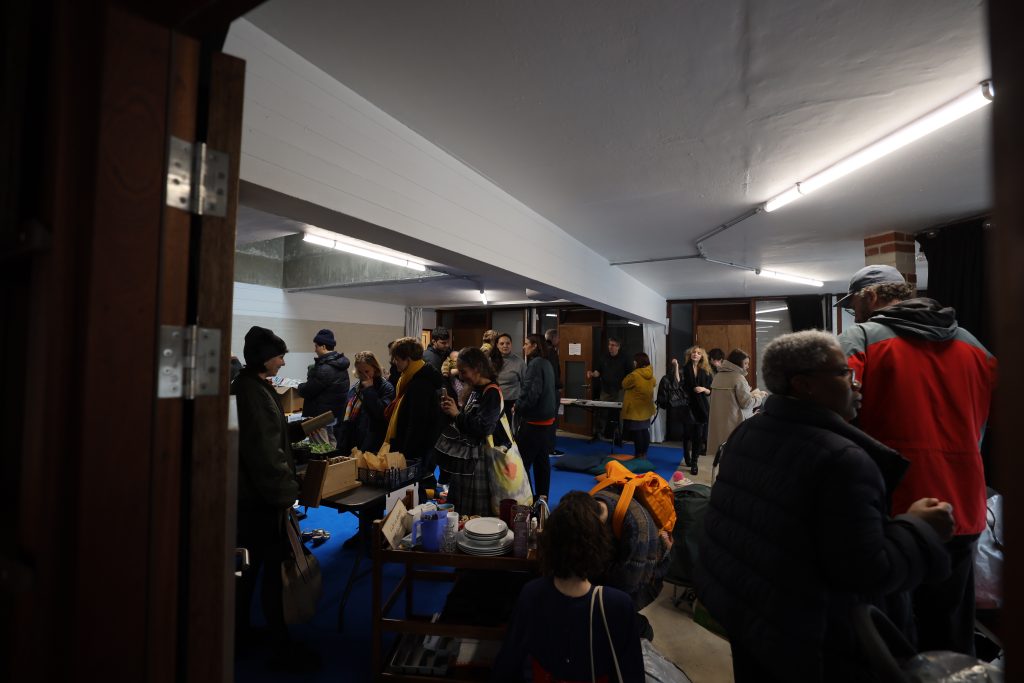
Flatness is a long-running queer decolonial project curated and moderated by Shama Khanna offering artists and audiences a space for creativity away from structurally unjust institutions and market-led forces of the web. Donations are always welcome to help keep the project running.
In 2019 the project relaunched with a new interactive design and a series of new artist commissions presenting new works and words by artists Lucy Clout, Adam Farah, Nat Lall, Ulijona Odišarija, TextaQueen, Tom Richards, Nikhil Vettukattil, Joseph Walsh, Dan Walwin and Rehana Zaman and writers Taylor Le Melle, Nisha Ramayya and Hannah Satz.
In 2022 we edited and published our first book Queer Diasporic Futurity which contains a collective call to restore loving connections to the body and to nature.
The first iteration of the Flatness was a screening programme ‘Flatness: Cinema after the Internet’ for a film festival (intentionally unnamed) in Germany in 2013 (with commissions by Anthea Hamilton, Ed Atkins, Oliver Laric and Ghislaine Leung among several others) and it has been live as a multi-format screening and web platform (flatness.eu and archive.flatness.eu) for artists’ moving image and network culture ever since. Flatness of the screen; of networks; the emotional flatness of neoliberal work and life; and resistance through flattening normative imbalances of power (namely white supremacy, cis, ablest, patriarchy). Flatness has been described as a ‘digital site of resistance’ (Dr Sylvia Theuri) decentering unjust narratives of the arts from the margins of the online and lately, the outdoors. Flatness reflects critically on the current context where freedom of expression and building community on the internet is devalued by social media algorithms which help push hate and misinformation up the agenda. The site presents a porous context for artworks to be shared as part of a genuinely networked culture.
How do we account for all the different ways — shy, slow, unseen — we show up for one another within a system where we don’t feel entirely together ourselves? Flatness feels around for more embodied alternatives in order to recentre accountability within our interactions online and IRL.
The original intention of Flatness was to value artistic experimentation and minor, durational experiences of art on the web. It is curated from a queer Brown crip positionality, with the aim of uplifting conversations and creative practices which defy intersectional oppression.
The aim of the website’s interactive elements – the calendar and comments feed – is to offer conversation around these works, in support of their critical and social contextualisation. All contributions are moderated according to our safer space commitment included on the homepage.
The 2019-20 edition of the site led to an ‘unflattening of the screen’ with key elements of works by Rehana Zaman, Adam Farah and Lucy Clout happening outside the frame of the site prompting a further evolution; to recognise the importance of creating safer spaces for marginalised communities to meet, share and heal at a distance from imperatives to produce.
Since 2021, Flatness’s focus is in health, land and education justice for underrepresented groups. The work builds on the thematic of the public programme Khanna curated for last year’s Brent Biennial, our book Queer Diasporic Futurity (read about us in greater depth there) and our recent programming for Forma and Peveril Gardens where Flatness (in collaboration with Beth Bramich) was recently in residence 2022-23. Our aim is to develop meaningful connections with local communities to strengthen our collective agency to create change.
Events have included screenings and gatherings sharing tools and knowledge about migrant rights resisting the policies and effects of the hostile environment, as well as the social housing and economic crises and the effect on the local creative community. We have also organised a swap shop, a sign-making workshop for kids, plant medicine knowledge sharing events for People of Colour and a storytelling session for migrants.
We use a transformative ecological or ‘wild’ framework, with social and environmental justice at its heart to identify where in our ecosystems we are thriving, and where there are gaps and needs amongst our communities.
Housing, healthcare, education, land, pay: who are being marginalised by lack of access and equity? In addressing this imbalance, how and what can we learn from people and practices which have also been historically sidelined? Those open-ended methodologies which are collaborative, self-organised, activist, embodied, healing, loving, non-english speaking, or not human at all?
To run with wildness and its refusal to conform is to accept a level of unknowability, or opacity, in ourselves as much as others. This acceptance helps to overcome the mind over body split and the colonial imperative to understand, and therein dominate.
Faced with the daily horrors and burn out of normative rule, there is great power in supporting those of us who occupy positions that are not the dominating culture such as medical herbalists working without borders, people with disabilities, queer activists, those in caring positions, kids themselves who embody wildness and play.
If we learn about our ecosystems both within and without – how we are part of and interact with each other and nature – we can understand how to live healthfully and reciprocally, rather than extractively and harmfully.
Read more in our publication Queer Diasporic Futurity.